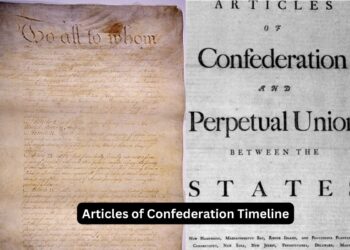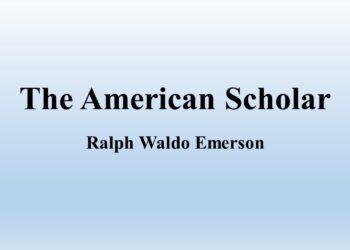A Fog and a Chronicle Essay by Nicole Rudick
A Fog and a Chronicle Essay by Nicole Rudick –In “A Fog and a Chronicle,” Nicole Rudick leads readers on a captivating journey through the misty realms of literary obscurity, offering profound insights into the overlooked and forgotten works of literature. Through meticulous analysis, personal reflection, and historical context, Rudick navigates the obscured corners of literature, illuminating hidden gems and silenced voices. This essay summary endeavors to unravel the central themes, arguments, and revelations presented by Rudick in “A Fog and a Chronicle.”
Exploring Literary Obscurity: Rudick delves into the labyrinthine depths of literary obscurity, uncovering works that have languished in the shadows of more celebrated titles. She examines the myriad factors contributing to obscurity, from changing literary tastes to historical circumstances, prompting readers to reconsider the value and significance of overlooked literature.
The Resurgence of Forgotten Works: A central theme in Rudick’s exploration is the process of rediscovery and resurgence of obscure works. She reflects on how marginalized voices and forgotten texts are brought back into the literary spotlight through scholarly research, reprints, and critical reassessment. Rudick underscores the importance of preserving and promoting diverse literary traditions.
Also Read-
- Archaic Objects Essay by Andrea Brady
- A Bird Translates Silence Essay by Dennis Zhou
- Wrong Poets Society Essay by Joyelle McSweeney
Memory, History, and Interpretation: Rudick navigates the intersection of memory and history, exploring how the passage of time influences our understanding and appreciation of literature. She emphasizes the importance of historical context in interpreting obscure texts, inviting readers to consider the dynamic relationship between literature and history.
Fostering Curiosity and Exploration: Throughout the essay, Rudick celebrates the role of curiosity and exploration in uncovering hidden literary treasures. She encourages readers to venture beyond the familiar canon and engage with lesser-known works, fostering a spirit of adventurous discovery.
The Power of Preservation and Advocacy: Rudick reflects on the vital role of preservation and advocacy in safeguarding obscure works for future generations. She highlights the efforts of scholars, publishers, and literary enthusiasts in preserving and promoting neglected texts, ensuring their accessibility and relevance for posterity.
Contemplating Literary Legacy and Memory: Lastly, Rudick contemplates the fragility of literary legacy and memory in the literary world. She reflects on the transient nature of literary fame and the risk of works being lost to history, emphasizing the importance of ongoing scholarship and advocacy in preserving literary legacies.
A Fog and a Chronicle Themes
- Exploration of Literary Obscurity: Rudick embarks on an exploration of the forgotten and overlooked realms of literature, examining works that have been obscured by more prominent titles. She delves into the reasons behind literary obscurity and explores the process of rediscovering these neglected works, emphasizing the importance of preserving and celebrating diverse literary traditions.
- Interplay Between Memory and History: Rudick delves into the dynamic relationship between memory and history in literature. She analyzes how the passage of time influences our perception and interpretation of literary works, emphasizing the significance of historical context in reassessing obscure texts and authors.
- Embracing Curiosity and Discovery: Throughout the essay, Rudick encourages readers to embrace curiosity and venture beyond the confines of mainstream literature. She celebrates the joy of discovery and the rewards of exploring lesser-known works, fostering a spirit of adventurous inquiry among readers.
- Advocacy for Literary Preservation: Rudick underscores the importance of preserving and advocating for obscure works to ensure their continued relevance and accessibility. She highlights the role of scholars, publishers, and enthusiasts in safeguarding neglected texts, promoting a more inclusive literary landscape.
- Reflections on Literary Legacy: Rudick prompts readers to contemplate the fragility of literary legacy and the risk of works fading into obscurity over time. She encourages ongoing scholarship and advocacy to preserve the rich tapestry of literary heritage, ensuring that diverse voices and perspectives are remembered and celebrated.
Conclusion:
In “A Fog and a Chronicle” by Nicole Rudick, readers are guided through the obscure realms of literature, where forgotten works and overlooked voices await rediscovery. Through meticulous analysis and thoughtful reflection, Rudick illuminates the importance of preserving diverse literary traditions and reassessing the value of neglected texts. This essay summary has unpacked the central themes explored by Rudick, inviting readers to contemplate the significance of literary obscurity and the role of memory, curiosity, and advocacy in preserving literary heritage.
FAQ:
1. What inspired Nicole Rudick to write “A Fog and a Chronicle”?
Rudick’s exploration is inspired by her fascination with obscure and forgotten works of literature. She seeks to shed light on the overlooked corners of literary history and to prompt readers to reconsider the value of neglected texts.
2. How does Rudick navigate the intersection of memory and history in literature?
Rudick examines how the passage of time shapes our understanding of literary works and emphasizes the importance of historical context in reassessing obscure texts and authors. She prompts readers to consider how memory and history influence our perception of literary legacy.
3. What message does Rudick convey regarding the importance of literary preservation?
Rudick underscores the significance of preserving and advocating for obscure works to ensure their continued relevance and accessibility. She highlights the role of scholars, publishers, and enthusiasts in safeguarding neglected texts and promoting a more inclusive literary landscape.
4. How does Rudick encourage readers to engage with lesser-known works?
Rudick celebrates the joy of discovery and encourages readers to embrace curiosity by venturing beyond mainstream literature. She prompts readers to explore the richness of lesser-known voices in the literary canon and to appreciate the diversity of literary traditions.
5. What impact does Rudick hope to achieve with “A Fog and a Chronicle”?
Rudick aims to inspire readers to reconsider their understanding of literary value and to advocate for the preservation of diverse literary heritage. She hopes to foster a greater appreciation for overlooked works and to encourage ongoing scholarship and advocacy in the literary community.
















